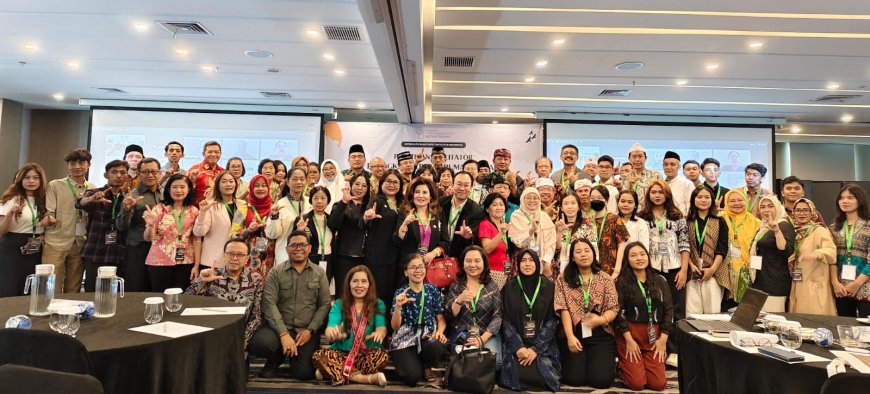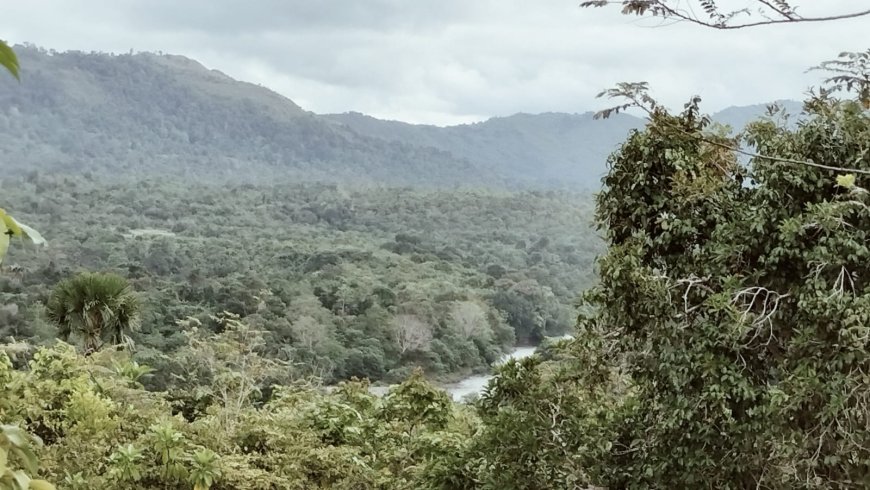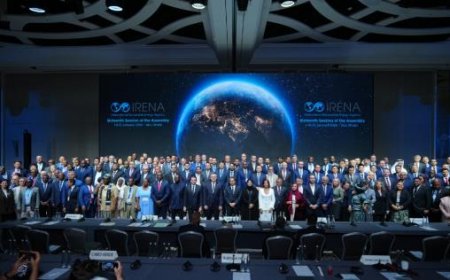Interfaith figures trained forest conservation literacy
To deal with threats to the existence of tropical forests, religious leaders and houses of worship were encouraged to have a major role as educational venues.

MOSAIC-INDONESIA.COM, JAKARTA — Indonesia's tropical forests, known as one of the world's greatest biodiversity, are considered to be facing serious threats of deforestation and degradation. This crisis is not only damaging ecosystems, but also exacerbating the effects of climate change.
In order to mitigate the threat to tropical forests existence, religious leaders and houses of worship are considered to have a great role as educational places as well as centers of environmental action. Indonesia's Interfaith Rainforest Initiative (IRI) organized a book launch and Facilitator Training on Improving the Role of Houses of Worship in Tropical Forest Protection, which took place in Jakarta on Saturday (19/10/2024). The training is conducted in a hybrid, offline and online way.
In the training, 200 participants, consisting of Islamic, Christian, Catholic, Hindu, Buddhist, and Confucian religious leaders, were trained to understand guides and religious lectures that support forest conservation. They were provided with six sets of guidebooks and sermons on tropical forest protection launched by IRI Indonesia.

“The facilitators will be a bridge between religious teachings and real action, helping the house of worship fulfill its role as a center of education, moral training, as well as driving environmental conservation and climate change control,” said Dr. Hayu Prabowo, National Facilitator of IRI Indonesia, in a speech at the opening event of the training on Saturday (19/10/2024).
Hayu explained that IRI Indonesia initiated training for facilitators from different religions to encourage real house-based actions in forest protection.“In the face of these challenges, we believe that houses of worship have an important role as a spiritual and social center that can drive real change in society,” Hayu said.
According to him, the moral and spiritual teachings espoused by various religions provide a strong foundation for uniting people in efforts to preserve the environment, especially tropical forests.
This training of Facilitators to Improve the Role of Houses of Worship in Tropical Forest Protection is a concrete step to empower religious leaders to be able to integrate religious values with environmental action. The event began with an opening prayer, followed by plenary sessions and group discussions in six breakout rooms based on their respective religions.
“The participants are expected to discuss and produce concrete action recommendations that can be implemented by the community of houses of worship in their region,” Hayu said.
Through this training, it is hoped that a competent and dedicated facilitator will be born in moving houses of worship to play an active role in maintaining the sustainability of Indonesia's tropical forests. This activity is also a first step in building a strong collective awareness for environmental conservation based on spiritual values.
Not only providing theoretical knowledge, participants were also provided with six sets of guidebooks and sermons on tropical forest protection. The book was specially compiled by IRI Indonesia for six major religions in Indonesia, namely Islam, Christianity, Catholicism, Hinduism, Buddhism, and Conghucu.
Hayu reiterated the importance of the guide as a tool for religious leaders in conveying the message of environmental conservation to their communities.
“These guidebooks and sermons are one of the tangible results of interfaith cooperation in the effort to preserve the sustainability of tropical forests. We drafted this material carefully to ensure that religious values can be aligned with environmental preservation action,” he said.
Each trainee receives a book containing guides and sermons that can be used in their respective houses of worship, as part of a strategy of integrating spiritual and religious values with forest conservation programs.
The book contains specific material tailored to the teachings of each religion, making it easier for religious leaders to apply environmental messages in their religious contexts.
“With this guidebook, we hope that houses of worship can more easily educate their worshippers about the importance of maintaining tropical forests. Not only that, this sermon is also expected to move people to take real action in environmental protection based on their religious beliefs,” he concluded.
Through these guidebooks and sermons, IRI Indonesia is committed to continuing to encourage interfaith collaboration in environmental protection and enhance the role of houses of worship as a center for greener social change.







